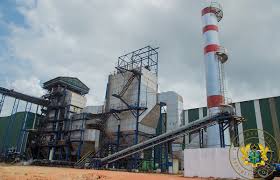
The Finance Minister, Ken Ofori-Atta, has identified five crucial steps the government must take to secure support from the International Monetary Fund (IMF). These include raising electricity tariffs, implementing revenue-enhancing measures, such as increasing the Value Added Tax rate and reviewing the Electronic Transaction Levy (E-levy), continuing monetary policy tightening to control inflation, and implementing comprehensive structural reforms, including a review of public expenditure. These measures were outlined in the Investors Presentation and were supported by the Governor of the Bank of Ghana, Dr. Ernest Addison.
To achieve fiscal and debt sustainability, the government has implemented fiscal adjustments with revenue and expenditure measures to improve debt sustainability and restore macroeconomic stability. We expect the plan to address structural bottlenecks, including contingent liabilities of State-Owned enterprises, commitment controls, and arrears accumulation, as well as domestic revenue mobilization. As part of its commitment to reforming the monetary and financial sectors, the government has also committed to rebuilding reserve buffers, mobilizing international concessional financing, and suspending external debt service payments.
To prevent the impact of the economic crisis on the most vulnerable, the government plans to safeguard social protection programs, distribute the burden of adjustment fairly, and strengthen and improve the targeting of social spending.
As part of the government’s effort to mitigate the effects of the pandemic and support the economy’s recovery, it plans to implement growth-oriented socio-economic policies, such as Ghana CARES.
Additionally, the government has set five ambitious macroeconomic objectives to secure a programme from the IMF for the medium term. These include achieving a 1.5% of Gross Domestic Product primary surplus, bringing inflation below 8% in the medium-term, restoring external buffers with gross international reserves reaching three months of import cover by 2026, achieving a real Gross Domestic Product growth target of 5% over the medium-term, and enhancing competitiveness with exports surpassing 37% of GDP in the medium run.
_
Source: Omanghana.com/SP




